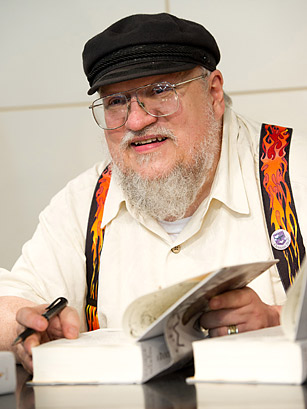
George R. R. Martin's grownup fantasy novels were not supposed to be filmable. They have a vast sprawl of locations and a Domesday Book's worth of characters, and their sheer length made The Lord of the Rings look like a pamphlet. Yet in the same year that Martin reasserted his rightful place as the king of epic fantasy fiction with his first A Song of Ice and Fire book in six years, A Dance with Dragons, his unique literary vision was successfully translated to the screen in HBO's Game of Thrones. Set amid the battle for a declining kingdom in a world where magic has died out (or seems to have), this lavishly constructed season pared the first novel to its sinewy medieval essence, a thrilling political drama with epic sweep and classic HBO moral complexity. And while Game of Thrones exposed a whole new audience to Martin's magic, A Dance with Dragons renewed his loyal readers' faith in its continuing powers. The artistry and savagery of Martin's storytelling are at their finest: he has seized hold of epic fantasy and is radically refashioning it for our complex and jaded era, and the results are magnificent.